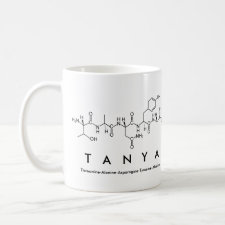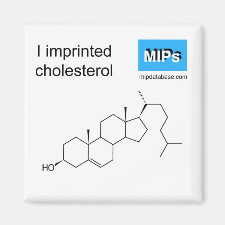
Authors: Piletsky SA, Piletskaya EV, Sergeyeva TA, Panasyuk TL, Elskaya AV
Article Title: Molecularly imprinted self-assembled films with specificity to cholesterol.
Publication date: 1999
Journal: Sensors and Actuators B: Chemical
Volume: 60
Issue: (2-3)
Page numbers: 216-220.
DOI: 10.1016/S0925-4005(99)00273-7
Abstract: Molecularly imprinted hydrophobic monolayers have been fabricated by spontaneous self-assembly of hexadecyl mercaptan in the presence of cholesterol on gold surfaces. The lypophilic layer of long chain hexadecan have been formed around the template molecules adsorbed on gold surface. The extraction of cholesterol has resulted in formation of sites in the layer of hexadecyl mercaptan which could selectively re-bind the template molecules. The imprinting cavities have been used as channels for potassium ferricyanide which was reduced at the electrode surface. It has been shown, that the molecular recognition process running inside of these channels diminished the mass- transport of potassium ferricyanide to the electrode surface and consequently reduced an electrochemical signal. The change of potassium ferricyanide reduction peak has been related to the template concentration. The formation of the cholesterol-specific monolayers, their specificity and stability has been studied and the possibility of its application for sensor development has been discussed. (C) 1999 Elsevier Science S.A. All rights reserved



Join the Society for Molecular Imprinting

New items RSS feed
Sign-up for e-mail updates:
Choose between receiving an occasional newsletter or more frequent e-mail alerts.
Click here to go to the sign-up page.
Is your name elemental or peptidic? Enter your name and find out by clicking either of the buttons below!
Other products you may like:
 MIPdatabase
MIPdatabase









